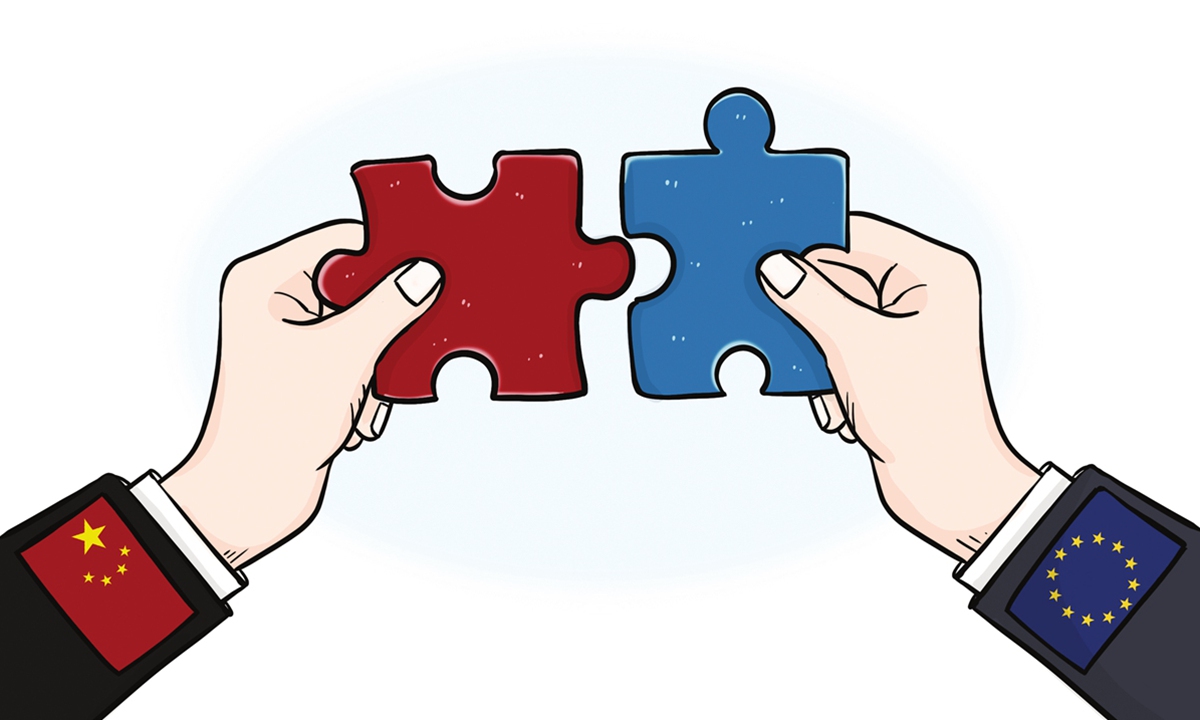
China EU relations
The past few weeks have witnessed frequent interactions between China and the EU with senior officials meeting, a high-level dialogue covering trade, digital fields and environmental protection convening, and a series of achievements and consensus being made. Analysts said pragmatic communication would help the EU to get a comprehensive understanding about China and the EU is called to resist negative influence from the US to ensure China-EU relations stay on the right track.
On Thursday, China’s Foreign Ministry said that the third China-Germany High-level Financial Dialogue will be held in Germany on October 1 and member of the Political Bureau of the CPC Central Committee, Vice Premier of the State Council and the Chinese lead person for the Dialogue He Lifeng will co-chair the Dialogue with Federal Minister of Finance and the German lead person of the Dialogue Christian Lindner.
The upcoming China-Germany High-level Financial Dialogue would be the latest engagement between China and EU and together with a recent string of dialogues, they will help to deepen mutual understanding, paving ways for China-EU leaders’ meeting at the end of this year, analysts said.
On Monday, China and EU concluded productive talks during the 10th High-level Economic and Trade Dialogue with the two sides reaching multiple areas of consensuses and making a noticeable step forward in their pragmatic ties.
Also, on September 9, Chinese Premier Li Qiang met with European Commission President Ursula von der Leyen on the sidelines of the G20 Summit in New Delhi.
Increasingly frequent interactions are part of China-EU relations, Cui Hongjian, a professor with the Academy of Regional and Global Governance with Beijing Foreign Studies University, told the Global Times.
Given the current major changes in the international and regional situations, these engagements have become more important as discussions on Europe's China policy are becoming more diverse, and some views on China are tough and maintaining exchanges could help the EU to develop a comprehensive understanding of China-EU relations, keeping their views on China in a more balanced way, Cui said.
Although China and the EU will continue to engage in dialogue, some negative factors from the EU side may dilute recent achievements. And to ensure that China-EU relations do not deviate from the track of cooperation, China and the EU still need to work together, the expert said.
Conflicts and disturbances also remain, especially in EU’s “derisking” industry policy measures targeting China, posing challenges and uncertainties to bilateral ties. In mid-September, European Commission President Ursula von der Leyen announced that the EU is launching a probe into Chinese electric vehicles (EVs), claiming the prices of imported Chinese vehicles are being kept "artificially low by huge state subsidies."
During the high-level economic and trade dialogue held in Beijing on September 25, the Chinese side once again expressed great concern and strong dissatisfaction with the anti-subsidy investigation.
Other measures included its “derisking” approach on China’s 5G. Germany last week became the latest European country to propose restrictions or bans on the use of equipment made by China's Huawei and ZTE, citing security concerns, Reuters reported. This came after the EU’s industry chief Thierry Breton in June urged more EU countries to join the efforts to curb or block Huawei and ZTE equipment from the bloc's 5G telecoms networks, the report said.
Moreover, Germany confirmed on Tuesday that it will no longer grant promotional loans to China from 2026 and no longer treat China as a developing country, a move Chinese experts said reflects some German politicians' alignment with the US in strengthening "decoupling" from China and creating economic and trade barriers aimed at the country.
Such steps suggest that a section of EU politicians have succumbed to pressure from the US' cold-war mentality toward China, Chen Hong, a Beijing-based independent analyst on global economy, told the Global Times on Friday, noting that in the context of a global economic downturn, this type of protectionism mindset will dampen the investment confidence and expectations of European enterprises in the Chinese market, and is not conducive to the hard-won progress made in the bilateral talks.
While urging the EU to drop its protectionism mentality, Chen said China and the EU still have a broad base for economic cooperation, with dialogues and exchanges remaining the mainstream rather than “decoupling.”
In the face of risks in global supply chains and downward pressure on the global economy, the world needs cooperation rather than confrontations, that’s why the Chinese side has been advocating for a cooperative and open mind in bridging misunderstandings, Chen said.
Cui said that unlike the US, which regards China as a long-term strategic competitor, the EU does not have too much strategic anxiety about China like the US, but the relationship among the three which features both competition and cooperation has become increasingly complex due to the increasing trilateral linkage between China, the US and the EU.
The frequent engagements between China and the US recently have, to some extent, promoted the EU's enthusiasm for dialogue with China. For the EU, its core concern is that when there are some changes in China-US relations, it needs to ensure that the interests of the European side are not harmed or ignored, Cui said.
The relationship between China and the EU may present a complex form of interactions. While they would seek dialogue and try to reach consensus, some negative view on China within the EU may offset the achievement made through their interactions. So it requires joint efforts from both China and the EU to strike a balance and keep bilateral relations on the right track, Cui noted.


